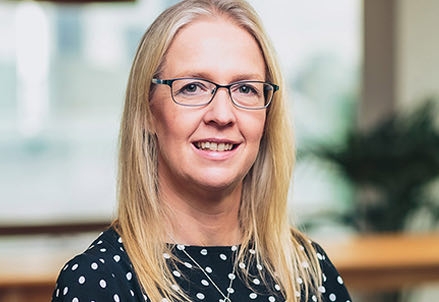Latest Blogs
-
James Jones-Tinsley: Guided Retirement Duty could be game changer

During May, the Pensions Policy Institute (PPI), sponsored by The Pensions Regulator (TPR), concluded that defined contribution (DC) pension savers – including those in SIPPs, as well as in Workplace Pensions - require more guidance when choosing suitable retirement products.
-
Lisa Webster: Overcomplicated rules are a threat

It may be more than a year since the Lifetime Allowance was formally abolished but issues are still emerging from the mess made by rushed legislation.
-
Lisa Webster: To gift or not to gift?

Since the announcement that pensions are to be included in estates for inheritance tax (IHT) purposes the question of whether those with large pension pots should be giving some funds away has become increasingly common.
Popular News
-
McFadden appointed new Work and Pensions Secretary
Veteran Labour MP Pat McFadden has been appointed the new Work and Pensions Secretary in the latest Cabinet reshuffle following the resignation of Angela Rayner on Friday.
-
Pension savers rushing to take 25% tax-free cash
Pension savers rushed to withdraw their 25% tax-free cash in unprecedented volumes in the 2024/25 financial year, according to new FCA data.
-
People want guaranteed income in retirement: survey
Two-fifths ( 39%) of pension savers say that a guaranteed income is their main priority in retirement.
-
Hargreaves and Schroders first to offer LTAFs in a SIPP
Hargreaves Lansdown has partnered with Schroders Capital to add two of its private markets long-term asset funds (LTAFs) to its platform.
-
Phoenix Group to rebrand as Standard Life
Savings and retirement group Phoenix will rebrand as Standard Life next March.
-
DB surpluses hit record £223bn in August
UK DB pension surpluses hit a record £223bn in August against long-term funding targets, according to analysis from pensions consultancy XPS.
iPensions Group, recently rebranded from Momentum Pensions, has launched The Platform SIPP to enable advisers and clients to consolidate their pensions into an online managed SIPP solution.
SIPP and cross-border financial services firm STM has expressed “disappointment” at the Court of Appeal’s decision to allow a challenge to the recent ‘Adams’ case judgment.
Investment platform Interactive Investor has scrapped or paused a number of SIPP fees for clients of its new acquistion The Share Centre.
Last year only two pension fraud cases a month were passed to the police to investigate despite nearly 400 reports to Action Fraud.
One in four workers in the UK have changed their pension plans due to the Coronavirus pandemic, according to new research released for Pensions Awareness Day this week.
Richard Stone, chief executive of The Share Centre, will leave the business on 18 September after 14 years at the firm to “pursue other interests and opportunities.”





